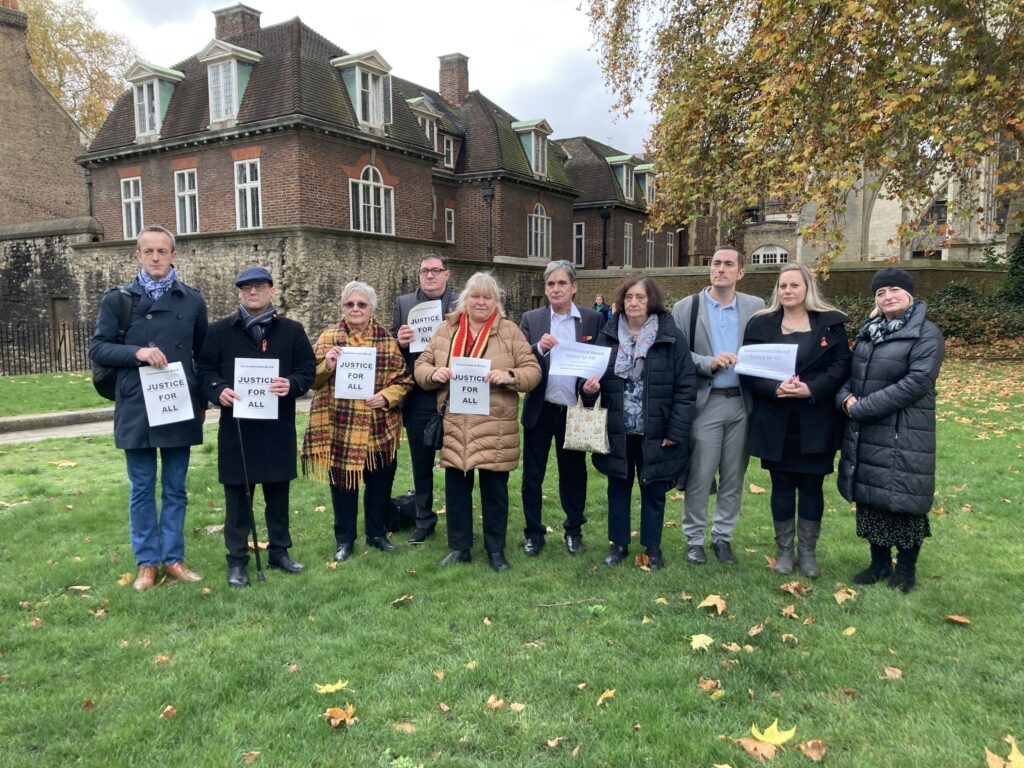Public Inquiry
Minister urged to reveal compensation plans
Written by Jessica Bomford, December 7, 2022
The Haemophilia Society (THS) has criticised the government for a ‘lack of transparency’ which could lead to delays in the payment of full compensation for people infected and affected by NHS treatment with contaminated blood and blood products in the 1970s and 80s.
A joint letter from our Chief Executive, Kate Burt, and Chair, Clive Smith, warns the government that any delays to implementing a compensation framework are a matter of life or death to those who have not yet received any financial support, and a cause of great anxiety to the community as a whole.
The letter to Paymaster General Jeremy Quin, who is the minister with responsibility for the Infected Blood Inquiry, follows a debate in Westminster Hall in November on compensation. After listening to the debate, junior minister Alex Burghart revealed to MPs and campaigners that the government had backtracked on its pledge to publish a response to its own study on setting up a compensation framework which was carried out by Sir Robert Francis KC.

Instead of responding when Sir Robert’s study was made public in June 2022, as it had promised to do, Mr Burghart said the government now had no plans to comment on the study until the Infected Blood Inquiry’s final report is made public next year. This means that everyone who believes they might be entitled to full compensation is left in the dark about what, if anything, they will receive and when they might get it.
Sir Robert’s study, which was commissioned by the Cabinet Office in March 2021, was designed to produce a workable framework for compensation, ready to implement when the inquiry publishes its final report in Summer 2023. In their letter, Kate and Clive said: ‘Delays to the delivery of full compensation will inevitably mean that some people will die before receiving a single penny of compensation, such as bereaved parents, many of whom are elderly and in poor health.’
While the payment of interim compensation in October to those registered on a UK support scheme was welcome, many of those affected, including bereaved children, unpaid carers and parents, have still not received any compensation in recognition of their loss. For those infected, there is great uncertainty about what kind of compensation scheme will be implemented and how this might impact on current on-going support payments.
In his evidence to the inquiry earlier this year, Sir Robert said steps could be taken before the end of the inquiry to set up expert legal and medical panels and establish an organisation at ‘arms-length’ from government to administer payments. We believe that work must start now to ensure that full and fair compensation is paid as soon as possible following the end of the inquiry. However, if the government does not publish its response to Sir Robert’s proposed compensation framework, it is not possible to move forward.
Kate and Clive urged Mr Quin to meet them and other campaigners to urgently find a way to move on from this stalemate which is causing so much stress and uncertainty.
Read Kate and Clive’s letter in full here.